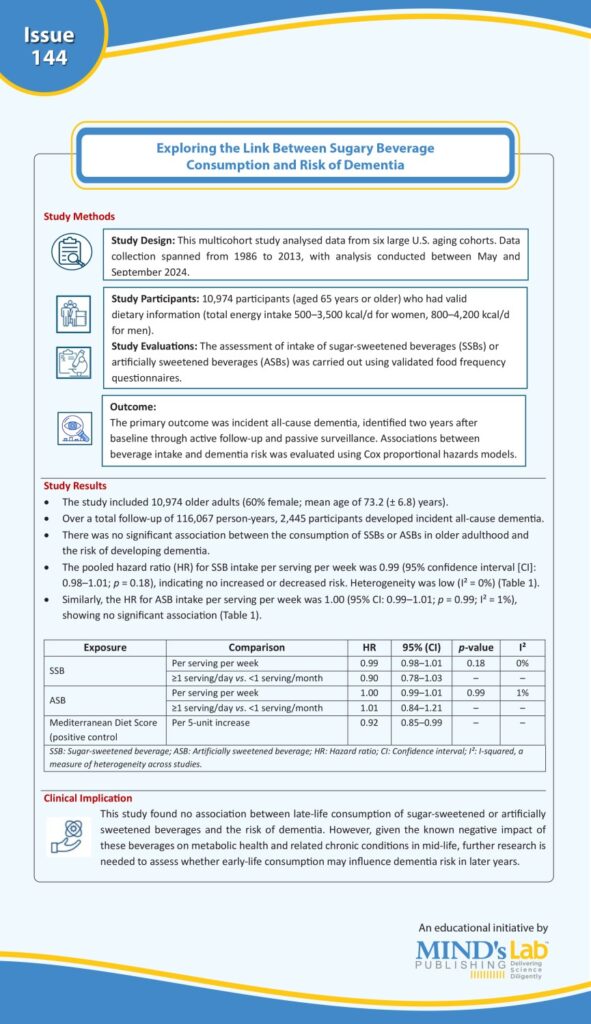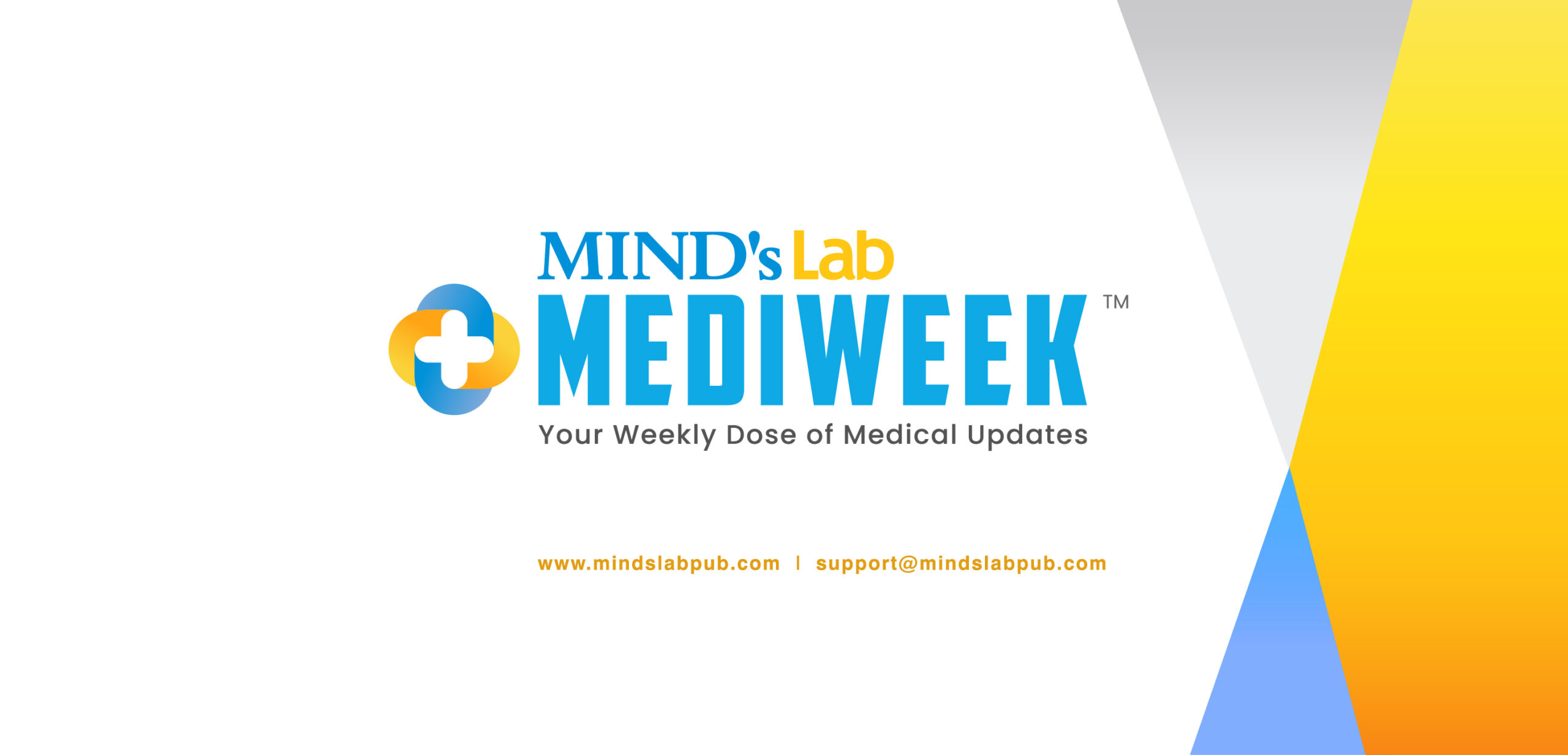
Dementia, a clinical syndrome marked by cognitive decline affecting daily functioning, poses major personal and societal burdens. This underscores the need for primary prevention strategies. Diet, being a modifiable risk factor, has emerged as a key focus of primary prevention.
Excessive sugar intake contributes to obesity and diabetes, both of which are known dementia risk factors. Animal studies have linked high sugar intake to Alzheimer-like changes such as increased β-amyloid aggregation in the brain. However, the high energy demands of the brain and its reliance on glucose add complexity to this relationship. There has been a rise in the consumption of sweetened beverages, including sugar-sweetened beverages (SSB) and artificially sweetened beverages (ASB, which are considered more healthy) among older adults. These beverages are linked to several chronic metabolic disorders. However, evidence on the association of sweetened beverages and dementia remains limited and mixed. For example, the UK Biobank, found that higher SSB intake (>2 units/day) was associated with increased risks of all-cause dementia and Alzheimer’s disease, while other studies found no such link. Similarly, conflicting associations betweem ASB and cognitive outcomes have been noted in studies. Variability in findings may stem from differences in dietary assessment, diagnostic accuracy, and population age ranges. The underdiagnosis of dementia highlights the importance of active follow-up to improve the study reliability.
A study by Chen H et al., published in the journal “JAMA Psychiatry”, aimed to investigate the association between SSBs, ASBs, and the risk of all-cause dementia in older adults. The multicohort analysis included 10,974 U.S. participants aged 65 and above from six longitudinal studies. Beverage intake was assessed through validated food frequency questionnaires, and incident dementia was tracked through active follow-ups and passive surveillance over 116,067 person-years. During the follow-up, 2,445 participants developed all-cause dementia. No significant association was found between late-life consumption of SSBs or ASBs and dementia risk. The pooled hazard ratio (HR) per serving per week was 0.99 (95% CI, 0.98–1.01; p = 0.18) for SSBs and 1.00 (95% CI, 0.99–1.01; p = 0.99) for ASBs. Even among the highest consumers (≥1 serving/day), dementia risk was not elevated. In contrast, higher Mediterranean diet scores were linked to reduced dementia risk. The effect of early-life beverage consumption on long-term cognitive outcomes needs to be investigated, considering their association with several chronic diseases in mid-life (See Graphic).

(Source: Chen H, Ding Y, Dhana K, Agarwal P, Beck T, Rajan KB, van Lent DM, Ma Y, Zong G, Bjornevik K, Yuan C. Sweetened beverages and incident all-cause dementia among older adults. JAMA Psychiatry.2025; E1-E9. Doi:10.1001/jamapsychiatry.2025.1230)
